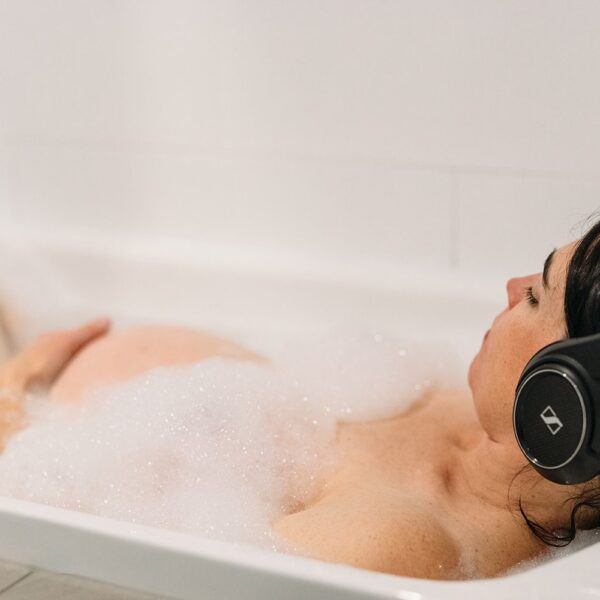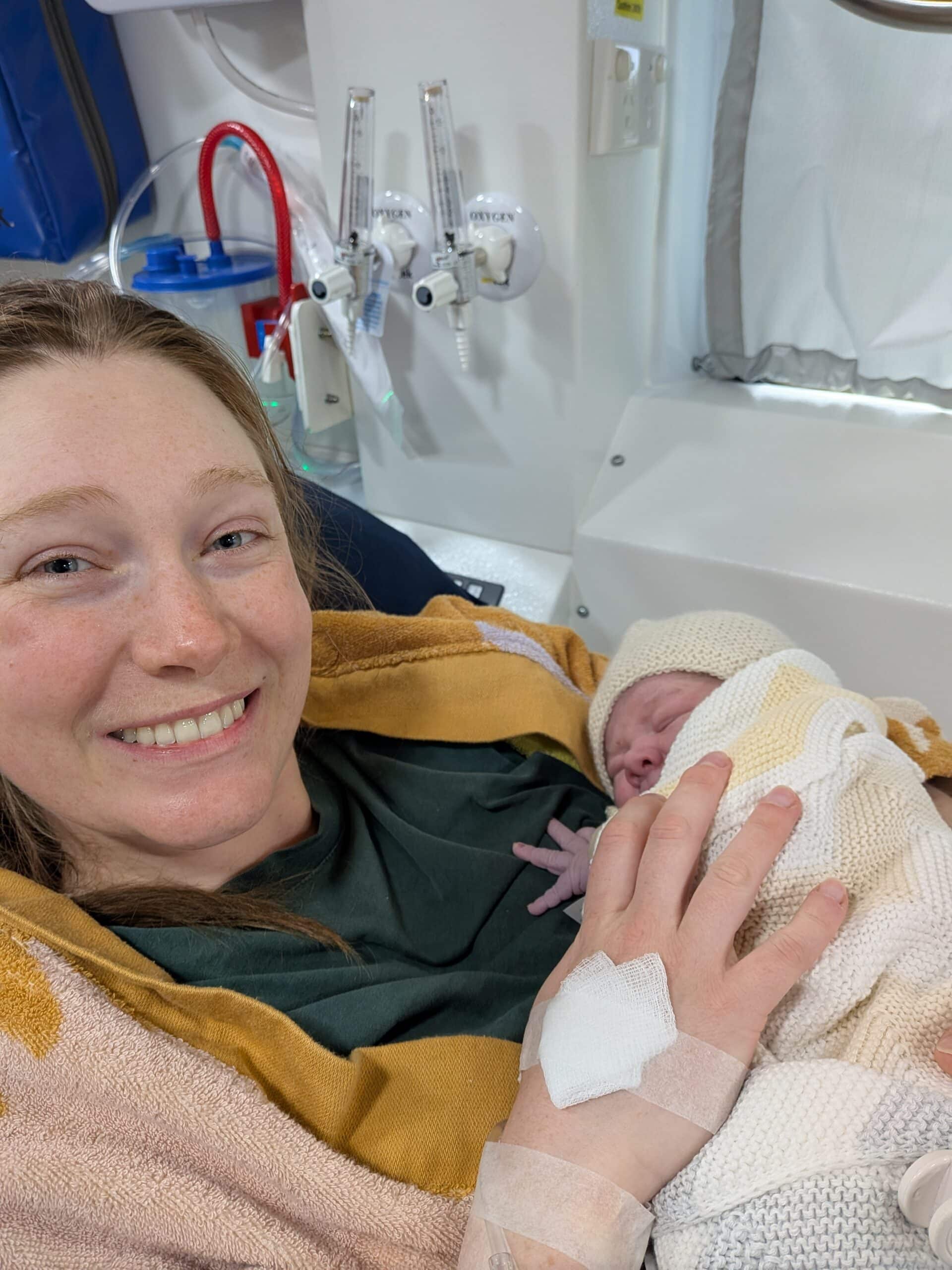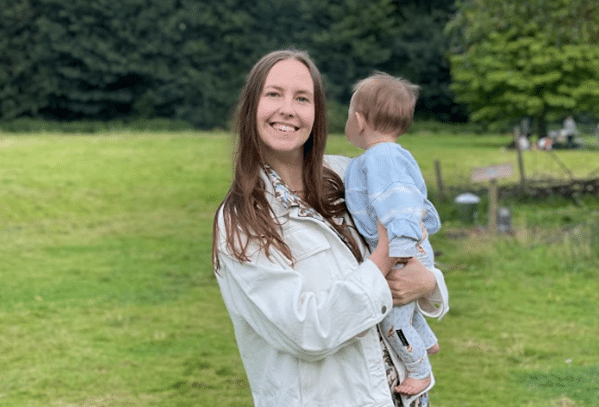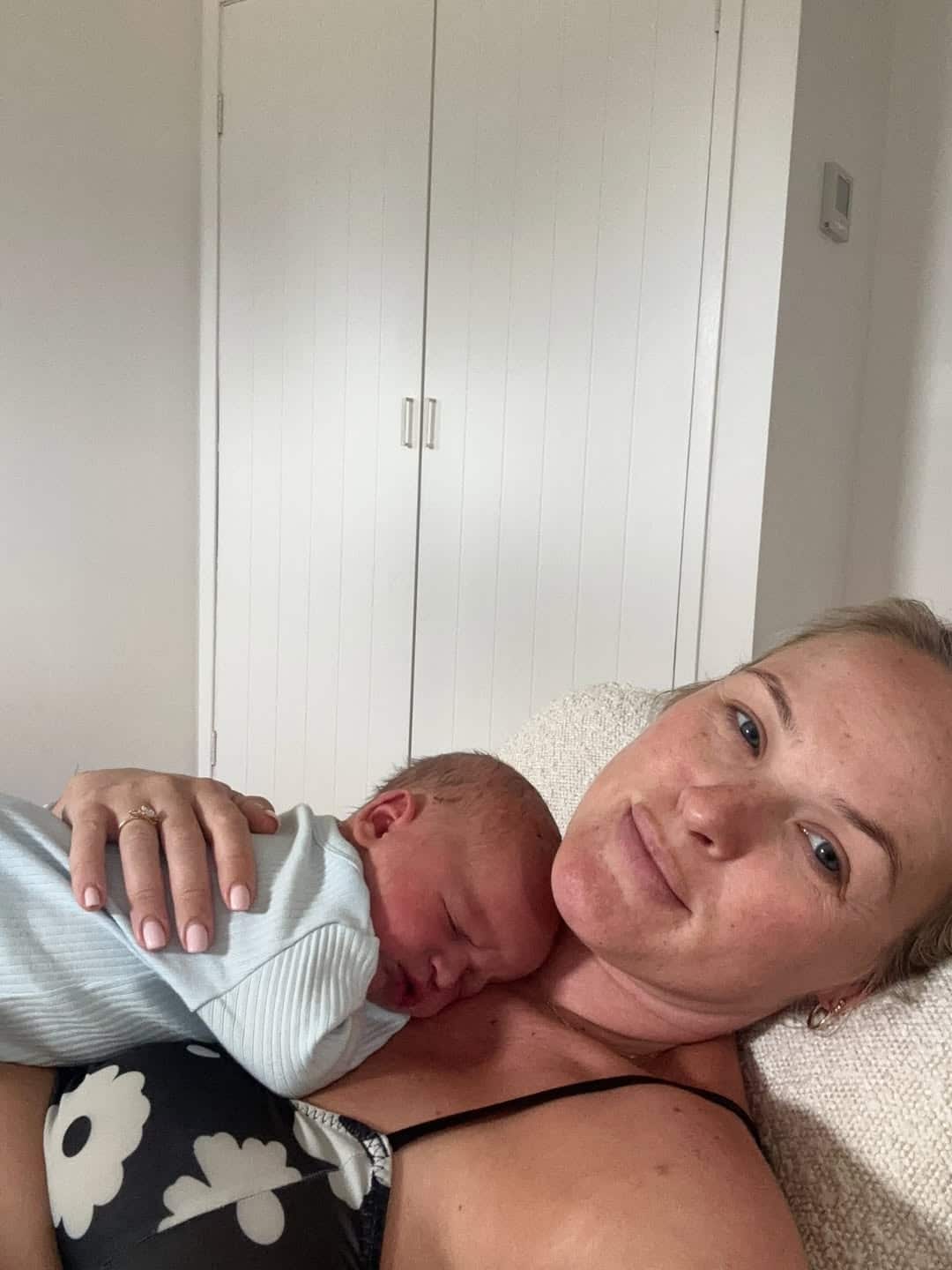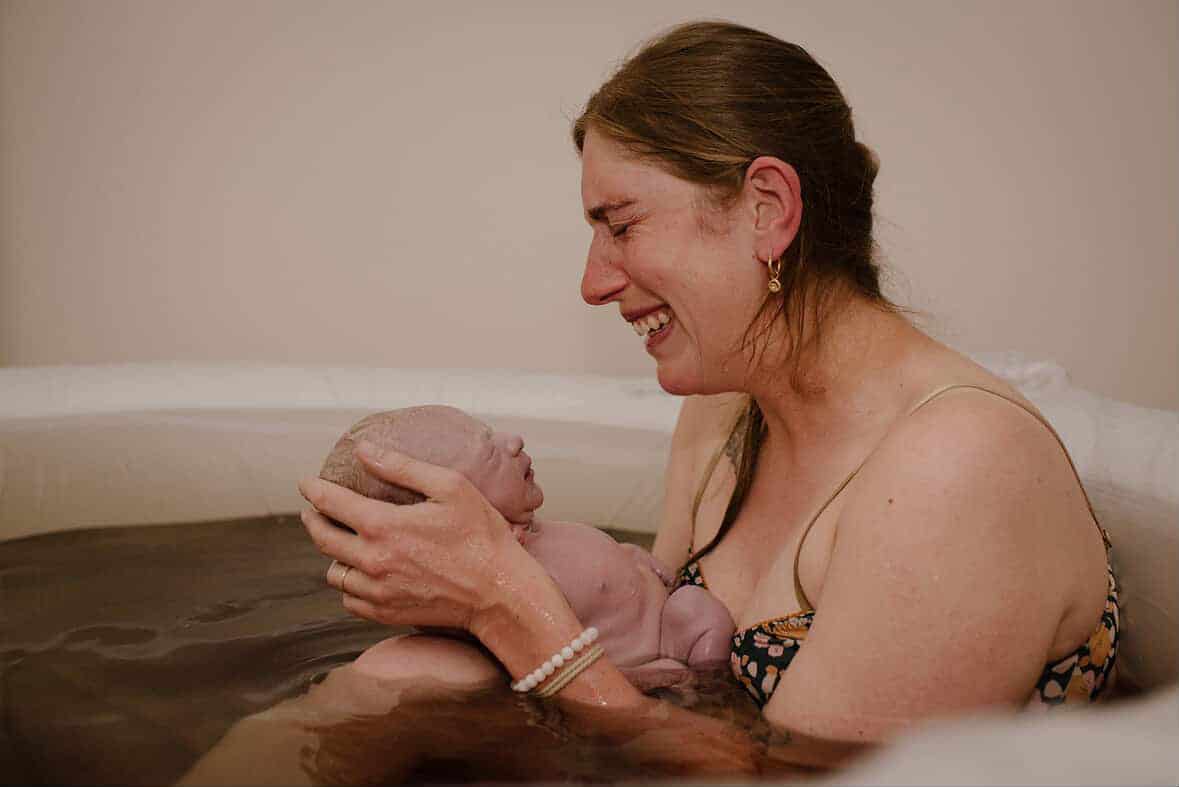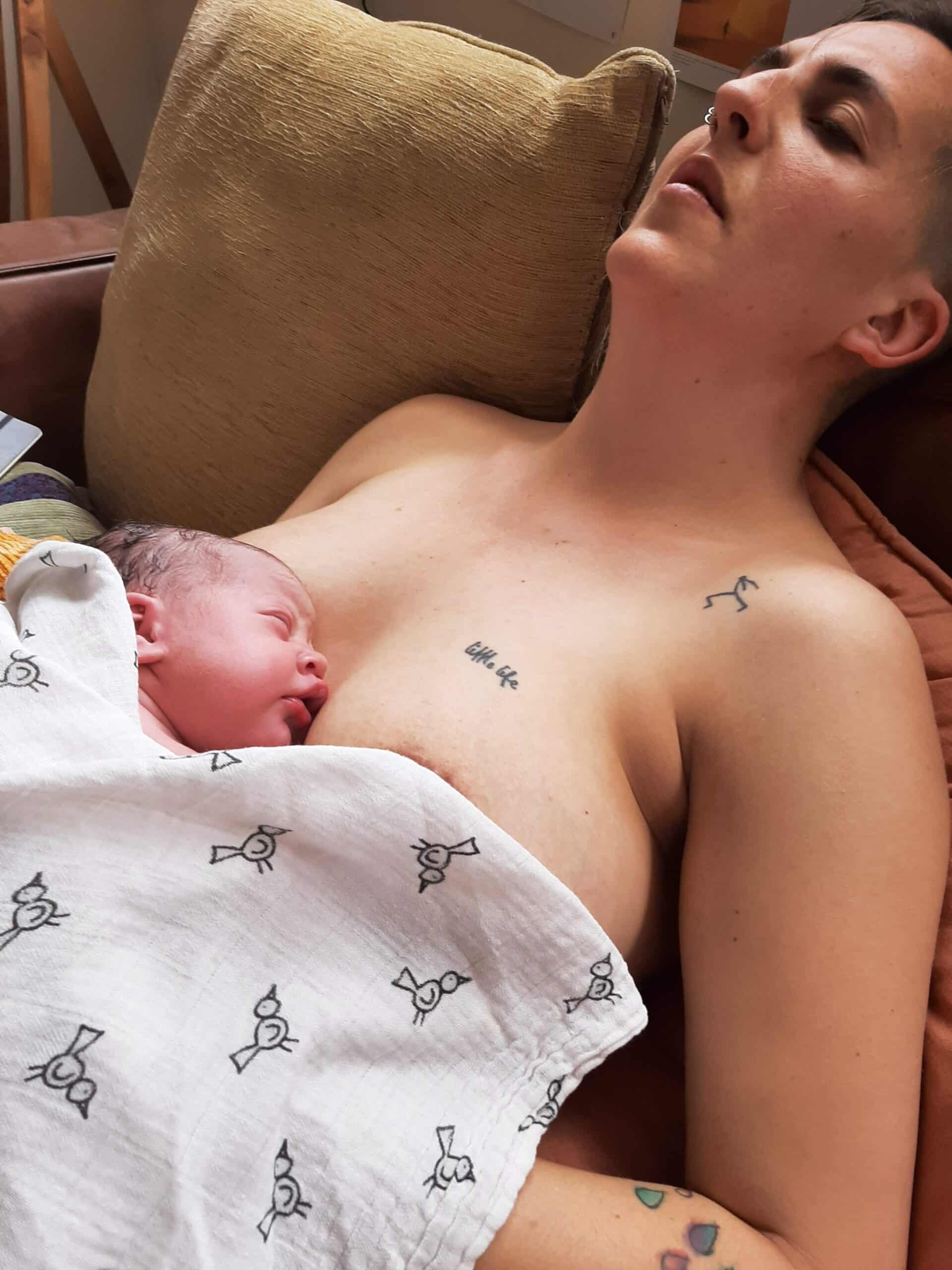Podcasts Gen | Postpartum – unsettled sleep, sleep consultant, sleep training, sleep school
EPISODE 469
Gen | Postpartum – unsettled sleep, sleep consultant, sleep training, sleep school
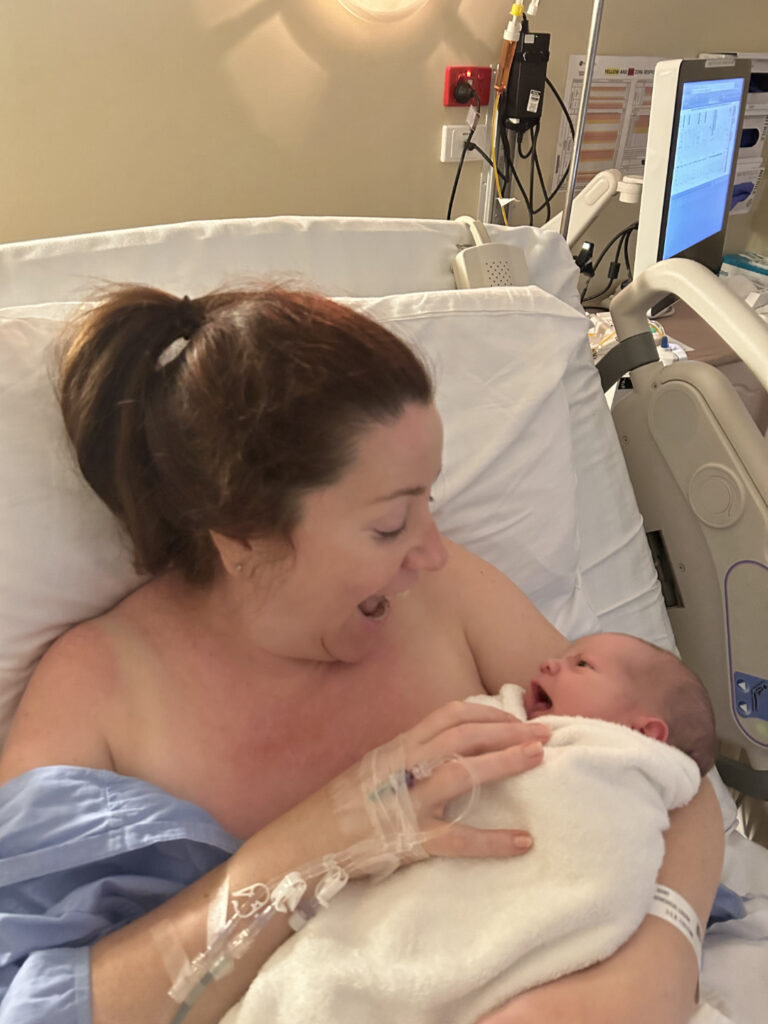
“We came home from the hospital on Christmas Eve and for the next week I was running on adrenaline; I felt amazing. Robbie was feeding every three hours – which I knew was normal – and I had an oversupply of breastmilk which presented some issues but overall he was breastfeeding happily.
“I really thrived for the first eight weeks but then a few things started to unravel. I’d read that a baby can’t be in a routine for the first twelve weeks so I was feeding on demand and he was sleeping on demand. Once we got towards 10 weeks, Robbie was becoming increasingly unsettled; I now know that he had a cow’s milk protein intolerance and he wouldn’t take a bottle so I couldn’t share any of the feeds. It was around this time that he started waking 10-12 times a night.
“I know sleep training or sleep schools aren’t for everyone. Even with my experience, I still don’t know what’s right. I’ve just been trying to do my best for me and my baby. I knew that the hospital I birthed in had a sleep school so I went there when Robbie was four-months-old. The only way he would sleep is to feed him to sleep and because it was so consistent I sustained nipple damage that I still have to see the GP regularly about.
“There was one night when I was lying on a mattress on the floor of his nursery and he started crying and I remember thinking: if I get in my car and I drive off the Plenty Gorge, I will never have to hear him cry again. I couldn’t do it anymore; I wasn’t getting a break day or night. I was in physical and mental pain; I felt like my muscles were melting off my bones; I was so tired.
“I presumed I was going to a sleep facility but it was actually a mother and baby unit and I was the only one there on a paediatric admission, not a psychiatric admission. I felt it was too intense for what I was trying to achieve and they discharged me and I returned home with no change to Robbie’s sleep.
“My next step was help from a private sleep consultant because I was to the point where I had to spend up to three hours a day driving him in the car because he wouldn’t sleep and I needed to give my nipples a break. It wasn’t safe either because I was so sleep deprived. I got a referral from a friend for this sleep consultant who was also a qualified medical professional with many, many years of experience in sleep support.
“I didn’t expect him to sleep through the night but I wanted him to wake up happy from a sleep because he was miserable and unsettled. We did responsive settling so he’d be in the cot and I did a lot of shushing and patting and humming of twinkle twinkle little star. I’d stay in for ten minutes, go out for two, go back in for ten. He responded quite well to it and was down to three-five wakes in the night and sleeping one of his two naps in the day. This lasted for two months but then his sleep went downhill again.
“As things started to get worse, it caused a lot of anxiety for me. We followed the wake windows and I was so strict, to my own detriment. I’d hardly leave the house because I felt like I was chained to the cot and what I don’t understand is the mixed advice: have your baby napping in the cot for ninety minutes, even if they’re not sleeping but also: be flexible! Let them sleep in the pram so you can get out and socialise but also make sure you’re at home so they can learn to sleep independently but look after your mental health and let them sleep in the car, too. TikTok knew what my problem was because I was just seeing so many different sleep consultants pop up and they all had different advice and I found that very, very difficult.
“As an A-type, spreadsheet-loving person, I hate the vagueness of it; I can’t go with the flow. It was really affecting my social life as well because Robbie would become an atomic bomb. His digestion was still haywire, I was still exclusively breastfeeding and it was all consuming.
“By ten months, things were really bad. We both got covid and I was breastfeeding on demand, we were contact napping and cosleeping. He wasn’t a great co-sleeper, he’d only be sleeping if he had a nipple in his mouth. He never really recovered from a sleep perspective from Covid; he was feeding ten times a night and he refused solids during the day so he started losing weight. At this stage I knew something had to happen; he was miserable, he wasn’t eating, his growth and development was affected and my mental health was declining. I felt like I was in a hole, I couldn’t even make conversation with friends. It was like my brain wasn’t working.
“I’m self-employed and I went back to work three months postpartum. I felt like a shit mum, I felt like I was failing my child and my clients and I knew I needed help. I was getting no wins, I felt crap at everything; I needed a win. I’m a publicist and I knew I could do that. The first job I did for free because I didn’t do it for the money, I needed it for my ego. I just felt like such a shit mum. I booked myself into Masada (Tresillian in NSW) and while there was a three-week waiting, having a date was a relief because I knew support was on its way.
“It was the best thing I’ve ever done. I was so hesitant because – and the nurses agreed – it has a terrible reputation. Their methods are responsive settling which I was doing anyway so I knew what the time limits were. It’s different for every baby – what I was doing with a ten-month-old is very different to a four-year-old but also, we didn’t shut the door and let them scream. The reputation is that they just let the baby cry all night and give you medication to sleep because they do offer you temazepam if you need help sleeping and honestly, if you’re there you do need help to sleep.
“The amount of people who were in there with me and the long waiting lists definitely prove that it’s needed and it’s popular. I met a few mothers who were attending for a second time with their second babies and they commented on the fact that the approach was much more flexible than it was years ago. Their method for a ten-month-old breastfed baby was to follow strict wake windows and use the feed, play, sleep routine. You put them in their cot and walk out. There’s no baby monitors in the room but staff were outside the room.
“Once you check in, they’re very concerned with the parent’s welfare. I felt so supported and cared for by these beautiful human beings who made sure I slept and ate meals and they were fantastic with Robbie. The word they used was ‘passionate’; he was very passionate about not sleeping. On the first two days they do all the settling – shush, pat – for you. They’re very strict on two hours of cot time, even the baby isn’t sleeping that whole time. They allow the baby to grizzle – it’s crying – for ten minutes and then they go in for two minutes of hands-on settling and then they go out for ten minutes. At night, they extend it to twenty minutes. Because I was still breastfeeding, we cut it down to four feeds, then two feeds then no feeds overnight. From doing this he started eating again; he put on weight while we were there. It was life changing; he was thriving and he doesn’t sleep through the night every night, but sometimes he does and I felt like a human again. They recommend a kind of lock-down situation at home of at least five days so you can transition home and keep the schedule.
“Without a doubt, my next bottle will take a bottle for one feed a day – breastmilk or formula. For me and the sake of my boobs and my mental health, one bottle a day. With the sleep – I don’t know. I hate sleep training but it’s the most beneficial thing I did for Robbie. I feel so conflicted from having both those emotions. I hated seeing him upset, but he was more upset at home when he wasn’t sleeping or eating. I feel a bit of regret that I let myself get sucked into all the shoulds and the different trains of thought and feeling like a crap mum who thought it was her fault her baby wasn’t sleeping.
“I remember I couldn’t even do half of my mother’s group because I was outside settling him because he was miserable. I remember thinking: what am I doing wrong? I know it’s not to do with me but it’s very hard to stay rational when you’re in the thick of it and thinking driving off a gorge is a solution. I listened to too many voices and it made my life harder.”

Topics Discussed
Breastfeeding, mother and baby unit, sleep consultant, Sleep school, sleep training, unsettled sleep
Episode Sponsor
If you’re considering The Birth Class, now is the time to buy. It just got bigger and better thanks to new content that enhances your birth education and preparation experience, including:
- A cheat sheet for your birth partner. This simple outline takes your support person through early and active labour – what to expect, how to support and what to say when challenges arise
- Images of birth positions – the ideal addition for visual learners 3 meditations to release tension, foster trust and navigate a change of plans.
- An illustrated guide to antenatal expressing – everything you need to know about collecting and storing colostrum.
Categories
Related Products
-
Birth Meditations
$49.00Narrated by Sophie Walker, these soothing and informative meditations help you feel supported and confident around birth.
Join the conversation
Sign up to get the latest updates, freebies, podcast releases straight into your inbox
@AustralianBirthStories
Follow along with us
@AustralianBirthStories
Follow along with us
@AustralianBirthStories
Follow along with us
@AustralianBirthStories
Follow along with us
@AustralianBirthStories
Follow along with us
@AustralianBirthStories
Follow along with us
@AustralianBirthStories
Follow along with us
@AustralianBirthStories
Follow along with us
@AustralianBirthStories
Follow along with us
@AustralianBirthStories
Follow along with us
@AustralianBirthStories
Follow along with us
@AustralianBirthStories
Follow along with us
